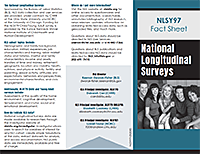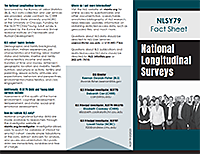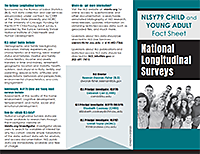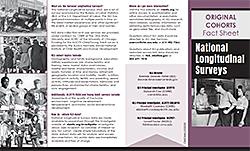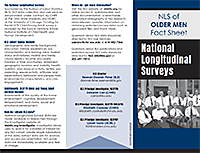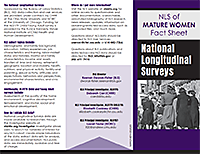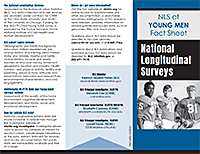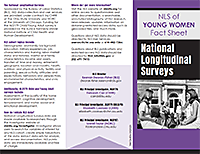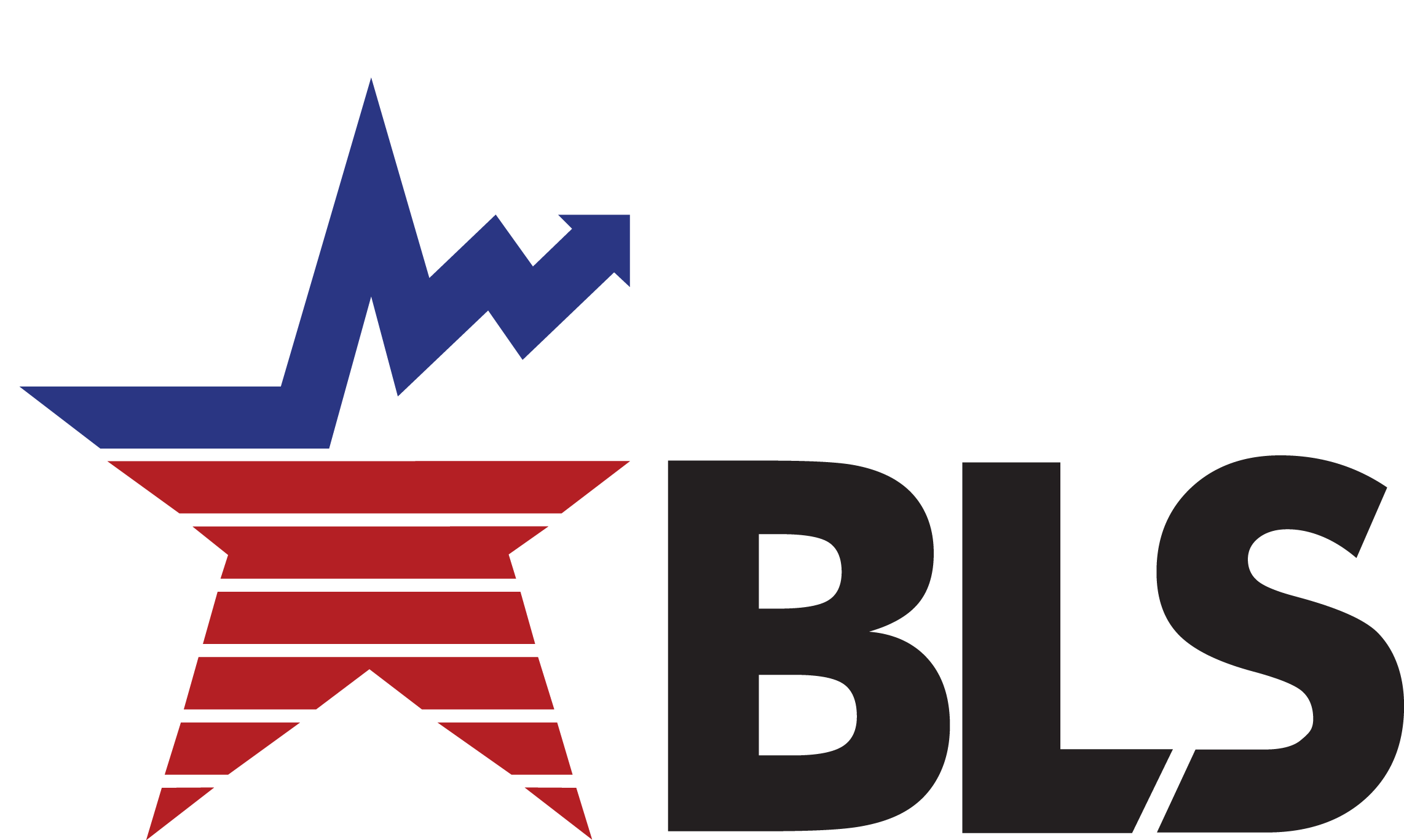Although numerous conferences have been impacted by the coronavirus pandemic, we would like to share some information about the National Longitudinal Surveys and NLS resources available for your research. We look forward to meeting you and answering your questions about the NLS when it's safe to meet face-to-face once again.
The National Longitudinal Surveys are free public data on the life course experiences of thousands of American men, women, and children ranging from birth to more than 80 years in age.
NLS Cohorts
National Longitudinal Survey of Youth 1997 (NLSY97)
Young men and women, interviewed 1997–present
- Sample size: 8,984
- Ages 12-17 in 1997
- Key research areas: school-to-work transition, decisions about postsecondary education and employment, behaviors and attitudes in young adulthood, family formation, health, training, cognitive and non-cognitive skills.
Additional demographic information about this cohort can be found in the introduction to the NLSY97 sample.
National Longitudinal Survey of Youth 1979 (NLSY79)
Young men and women, interviewed 1979–present
- Sample size: 12,686
- Ages 14-22 in 1979
- Key research areas: school-to-work transition, decisions about postsecondary education, employment, job training, military service, family formation, preparations for retirement, health, cognitive and non-cognitive skills, income, assets, and program participation.
Additional demographic information about this cohort can be found in the introduction to the NLSY79 sample.
Children and Young Adults of the NLSY79 (CYA)
Children born to female NLSY79 respondents, interviewed 1986–present
- Sample size: 11,500+
- Ages birth-40+
- Key research areas: linkages between maternal-family behaviors and attitudes, child cognitive development, education, and employment.
Additional demographic information about this cohort can be found in the introduction to the NLSY79 CYA sample.
The Four Original NLS Cohorts
NLS Older Men, interviewed 1966–1990 (NLSM)
- Sample size: 5,020
- Ages 45-59 in 1966
- Key research areas: timing and extent of labor force withdrawal, retirement experiences, health and aging.
Additional demographic information about this cohort can be found in the introduction to the Older Men sample.
NLS Mature Women, interviewed 1967–2003 (NLSW)
- Sample size: 5,083
- Ages 30-44 in 1967
- Key research areas: labor market reentry at midlife, balancing household and work responsibilities, husband’s labor market experiences, labor force withdrawal and retirement experiences, intrafamily transfers of time and money, health and aging.
Additional demographic information about this cohort can be found in the introduction to the Mature Women sample.
NLS Young Men, interviewed 1966–1981 (NLSM)
- Sample size: 5,225
- Ages 14-24 in 1966
- Key research areas: school-to-work transition, decisions about post-secondary education, employment, and military service.
Additional demographic information about this cohort can be found in the introduction to the Young Men sample.
NLS Young Women, interviewed 1968–2003 (NLSW)
- Sample size: 5,519
- Ages 14-24 in 1968
- Key research areas: school-to-work transition, decisions about postsecondary education and employment, family formation and childrearing, husband’s labor market experiences, intrafamily transfers of time and money.
Additional demographic information about this cohort can be found in the introduction to the Young Women sample.
Areas of Study
Data from the NLS are used by researchers from a wide variety of disciplines including sociology, economics, geography, public health, nursing, psychology, statistics, education, maternal and child health, public policy, and political science.
Issues Impacting Lives
- Labor Market Status and Histories
- Demographic & Family Background
- Marital Histories
- Education Experiences
- Military Service
- Job Characteristics and Training
- Income and Assets
- Transfers of Time & Money
- Retirement and Social Support
- Geographic Location and Mobility
- Civic Engagement
- Attitudes and Expectations
- Health, Nutrition, and Physical Activity
- Fertility and Parenting
- Prenatal and Postnatal Health
- Behaviors and Perspectives
- Sexual Activity
- Drug and Alcohol Use
- Delinquent Activities & Arrest Records
- Child Home Environment
- Child Cognitive Development
- Child Temperament
- Child Motor, Social, and Emotional Development
Additional information about these topics can be found in the NLS user brochures and data briefs (available for download).
Resources
NLS Publications by the U.S. Bureau of Labor Statistics
Visit: bls.gov/nls/news.htm to read the NLSY97 and NLSY79 press releases.
NLS Information website
Visit: nlsinfo.org for complete documentation of the NLS cohorts including user’s guides, questionnaires, custom weights, errata, and more.
NLS Annotated Bibliography
Visit: nlsbibliography.org for an up-to-date searchable record of research based on data from all cohorts of the National Longitudinal Surveys.
Investigator website
Visit: nlsinfo.org/investigator to search for variables of interest for any NLS cohort, create simple tabulations of the data, extract data sets for analysis, and access documentation.
NLS User Services
User services is available to answer your NLS questions, such as using Investigator to download data, linking rosters, and much more. Contact user services by email at nls_info@bls.gov or call 614-442-7366.
Sponsored by the U.S. Bureau of Labor Statistics
The National Longitudinal Surveys are sponsored by the U.S. Department of Labor, Bureau of Labor Statistics. The Eunice Kennedy Shriver National Institute of Child Health and Human Development and the National Institute on Drug Abuse provide additional funding.


